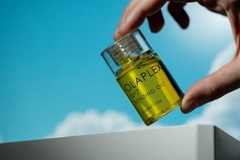BASF partners with Vattenfall and Vestas to power chemical production sites with fossil-free energy

20 Jun 2024 --- Vattenfall and BASF enter supply and service contracts with Vestas for 112 wind turbines, each with a nominal capacity of 15 megawatts. The sustainable energy will help production of chemicals, including cosmetics.
The V236-15.0 megawatt turbines will be installed in the Nordlicht I and II offshore wind projects in the German North Sea, off the island of Borkum.
BASF says that when they are fully operational in 2028, wind farms are predicted to generate enough electricity for about 1.6 million homes. Using low-emission steel will significantly decrease the carbon footprint of the turbine towers.
Reducing CO2 emissions
Low-emission steel will be used in the construction of the turbine towers. Specifically, the top sections of 56 out of the 112 towers will be fabricated with low-emission steel, which will reduce the carbon footprint by 16%.
The steel is made from 100% steel scrap melted in an electric arc furnace fully powered by wind energy, decreasing the carbon footprint by 66% compared to traditional methods.
The Nordlicht wind farm area is 85 kilometers north of Borkum in the German North Sea. It consists of Nordlicht I, with a capacity of around 980 megawatts, and Nordlicht II, with a capacity of around 630 megawatts.
The turbines will be installed in 2027 and 2028, and the farms are expected to be fully operational by the end of 2028. Electricity production is projected to total around 6 TWh per year.
BASF holds a 49% stake in the Nordlicht wind projects. The partnership is Vattenfall’s largest offshore wind farm project, with a total installed capacity of 1.6 gigawatts. The projects will be built without state assistance.
Vattenfall will use its share of the generated power to provide fossil-free electricity to its German customers, while BASF will use it to power its chemical production sites in Europe, primarily in Ludwigshafen.













